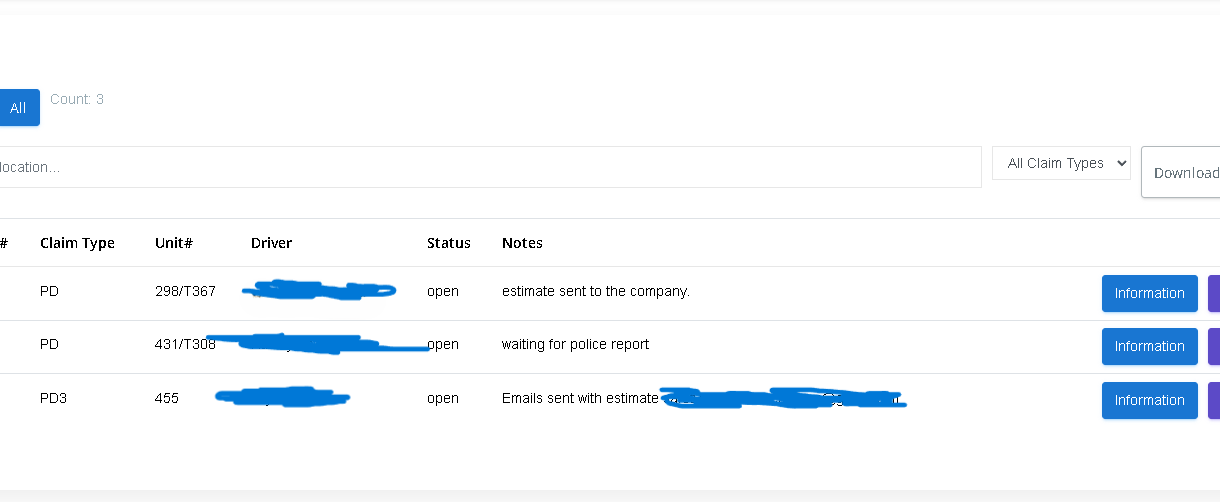
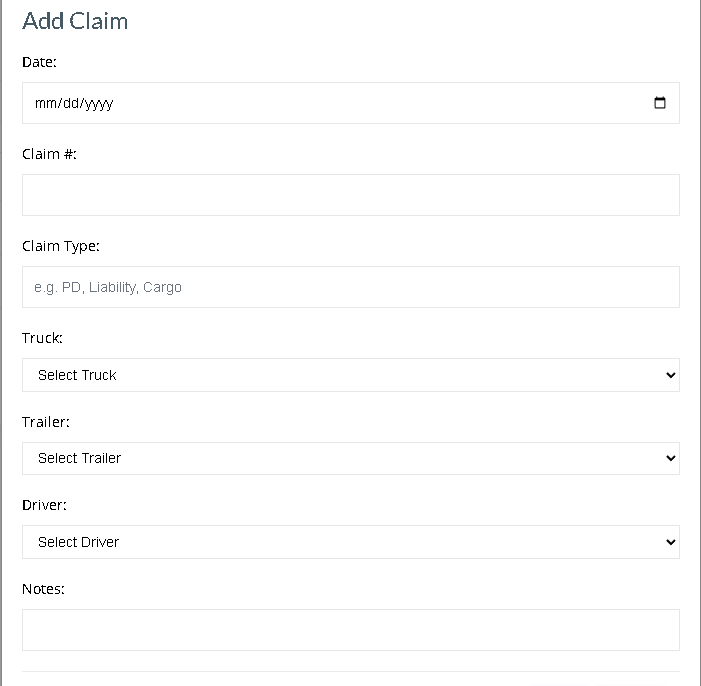
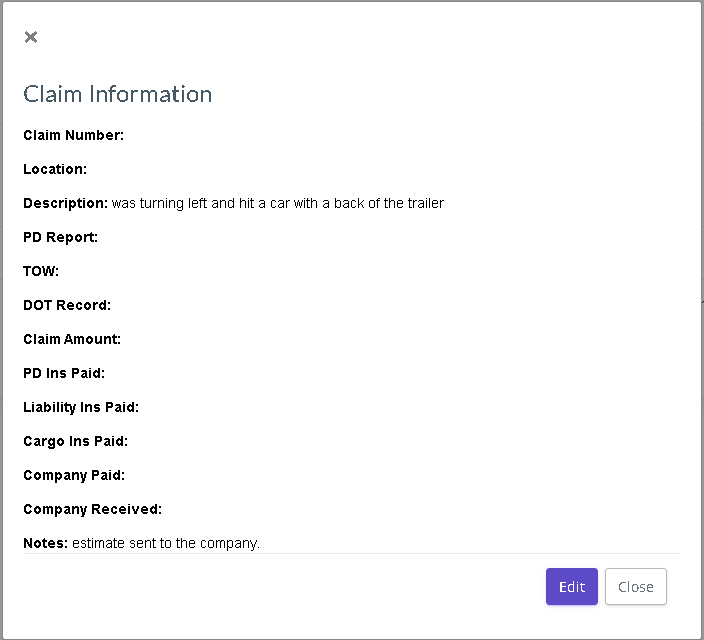
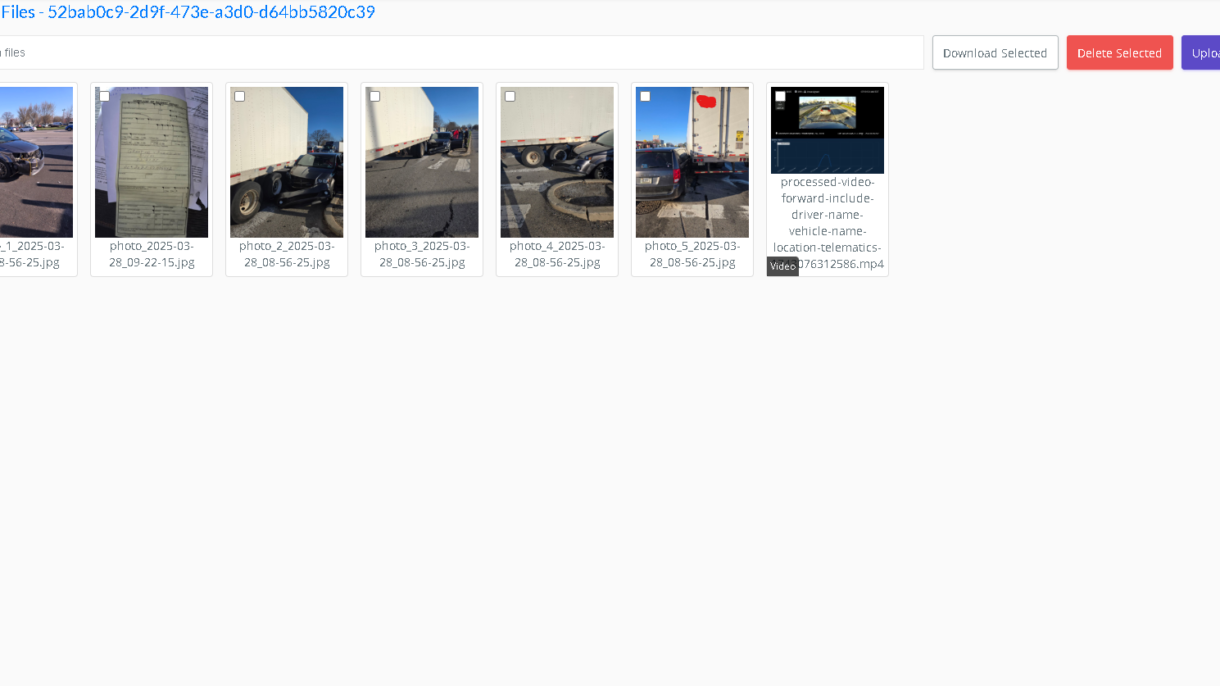
🛡️ Claims Management
Through a centralized and fully searchable claims management module, I developed a streamlined system for tracking incidents, recording payouts, and storing accident documentation — giving safety managers a full audit trail across trucks, trailers, and drivers.
Accident and incident tracking is a critical part of fleet compliance and insurance reporting. The Claims module in Yuriance TMS centralizes all post-incident documentation — from initial details and involved units to uploaded photos, reports, and claim statuses — giving safety managers a complete view of every case in one screen.
📌 Strategy
The goal of this module is to eliminate chaotic paper trails and fragmented email chains by keeping all claim data in a structured, searchable format. Each claim is directly tied to a truck, trailer, and driver, ensuring accountability and transparency during investigations, audits, or internal reviews.
🎨 Design
The Claims screen is clean and built for fast reference and documentation:
Drag-and-drop upload interface for related photos, videos, or scanned files
Tab filters separate Open, Closed, and All claims
Search bar allows filtering by claim number, driver, or location
Color-coded action buttons for viewing details, closing, or reopening a claim
“Add Claim” modal captures all essential details: unit numbers, drivers, trailers, claim type, and notes
Claim detail view includes payout records (PD, liability, cargo), descriptions, DOT/TOW info, and company reimbursements
⚙️ User Experience
This page was designed for rapid access and full traceability. Key functionality includes:
✅ One-click access to incident records and images
✅ Upload accident reports, dashcam footage, and tow slips
✅ Document payout info across PD, Liability, Cargo, and company-paid fields
✅ Quickly close claims when resolved — and reopen if needed
✅ Export claim logs for insurance partners or legal support
✅ Fully searchable by unit number, driver, claim type, or keyword
The Claims page in Yuriance TMS is built to bring structure and visibility to one of the most sensitive areas of fleet operations: accident and insurance claims. Instead of relying on scattered emails, handwritten notes, and file folders, all incidents are captured digitally from the moment they occur. Each record includes a linked truck, trailer, and driver, alongside claim type, internal notes, and payout tracking fields. This ensures full traceability throughout the entire resolution process — whether it involves property damage, liability disputes, or cargo loss.
The design prioritizes speed and clarity. Color-coded tabs let staff filter between open and closed claims instantly. Each row in the claim table displays the most critical details — date, driver, claim type, and notes — with quick action buttons for pulling up claim information or uploading related files. The ability to search by driver name, unit number, or keyword eliminates the time waste that typically comes with traditional paperwork.

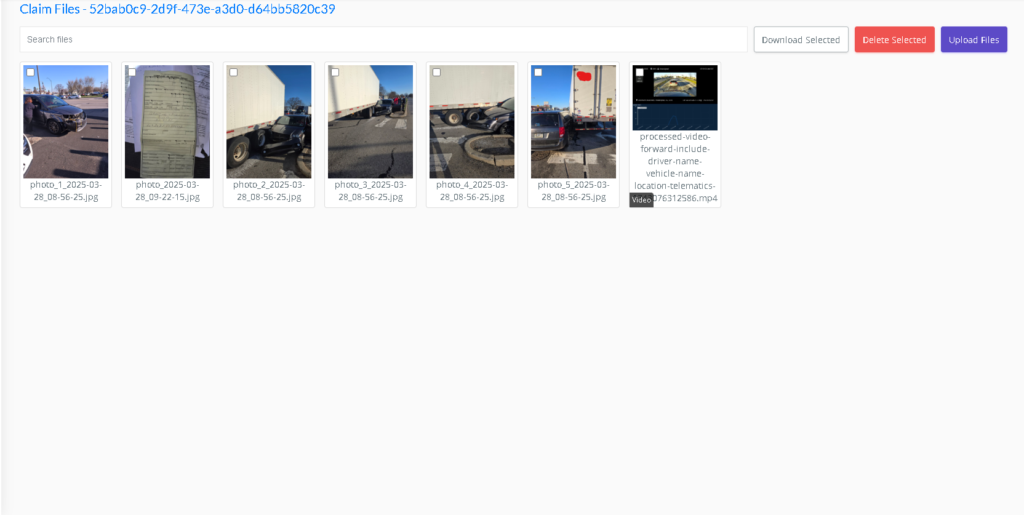
Beyond data entry, the module supports robust documentation. Files such as police reports, dashcam footage, photos of damage, and repair estimates can be uploaded directly into each claim. This provides a secure, searchable archive that not only aids insurance processing but also strengthens internal safety analysis and FMCSA compliance.
Overall, this page is designed to protect the company from liability while empowering the safety team with the tools they need to respond quickly, prove compliance, and keep thorough records for every incident that occurs on the road.
